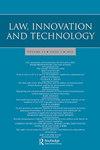争议首先:限制指令(EU) 2015/412对转基因作物种植的国家决策成功的因素
Q1 Social Sciences
引用次数: 1
摘要
摘要欧洲对转基因作物的种植有着长期的分歧。虽然法律框架是基于安全评估的,但分歧超出了这些风险,并植根于政治、社会和文化原因。2015年,由于讨论陷入僵局——无论是想要种植转基因作物的成员国,还是不想种植的成员国——第2015/412号指令获得通过。该指令除安全评估外,还允许MS基于非安全考虑禁止在其领土内种植转基因生物,旨在消除僵局,并赋予MS限制种植的自主权。然而,截至2018年,这种方法似乎只取得了部分成功。在这篇文章中,我们确定了限制有效使用新指令的因素;然后,我们使用Poort的互动立法模型,结合争议精神,分析了该指令的潜力。本文章由计算机程序翻译,如有差异,请以英文原文为准。
Controversy first: factors limiting the success of Directive (EU) 2015/412 for national decision-making on the cultivation of GM crops
ABSTRACT The cultivation of GM crops in Europe has a long history of disagreement. While the legal framework is based on a safety assessment, the disagreement goes beyond such risks and is rooted in political, social and cultural grounds. In 2015, with the discussion having become deadlocked—neither Member States (MS) who wanted to cultivate GM crops nor those who did not could have their way—Directive (EU) 2015/412 was adopted. This Directive which, in addition to the safety assessment, enables MS to prohibit the cultivation of GMOs in their territory based on non-safety considerations, was supposed to remove the deadlock and give MS autonomy to restrict cultivation. However, as of 2018, it seems that this approach has been only partially successful. In this article, we identify factors limiting the effective use of the new Directive; and, then using Poort’s model of interactive legislation combined with an ethos of controversies, we analyse the potential of the Directive.
求助全文
通过发布文献求助,成功后即可免费获取论文全文。
去求助
来源期刊

Law, Innovation and Technology
Social Sciences-Law
CiteScore
4.50
自引率
0.00%
发文量
18
期刊介绍:
Stem cell research, cloning, GMOs ... How do regulations affect such emerging technologies? What impact do new technologies have on law? And can we rely on technology itself as a regulatory tool? The meeting of law and technology is rapidly becoming an increasingly significant (and controversial) topic. Law, Innovation and Technology is, however, the only journal to engage fully with it, setting an innovative and distinctive agenda for lawyers, ethicists and policy makers. Spanning ICTs, biotechnologies, nanotechnologies, neurotechnologies, robotics and AI, it offers a unique forum for the highest level of reflection on this essential area.
 求助内容:
求助内容: 应助结果提醒方式:
应助结果提醒方式:


